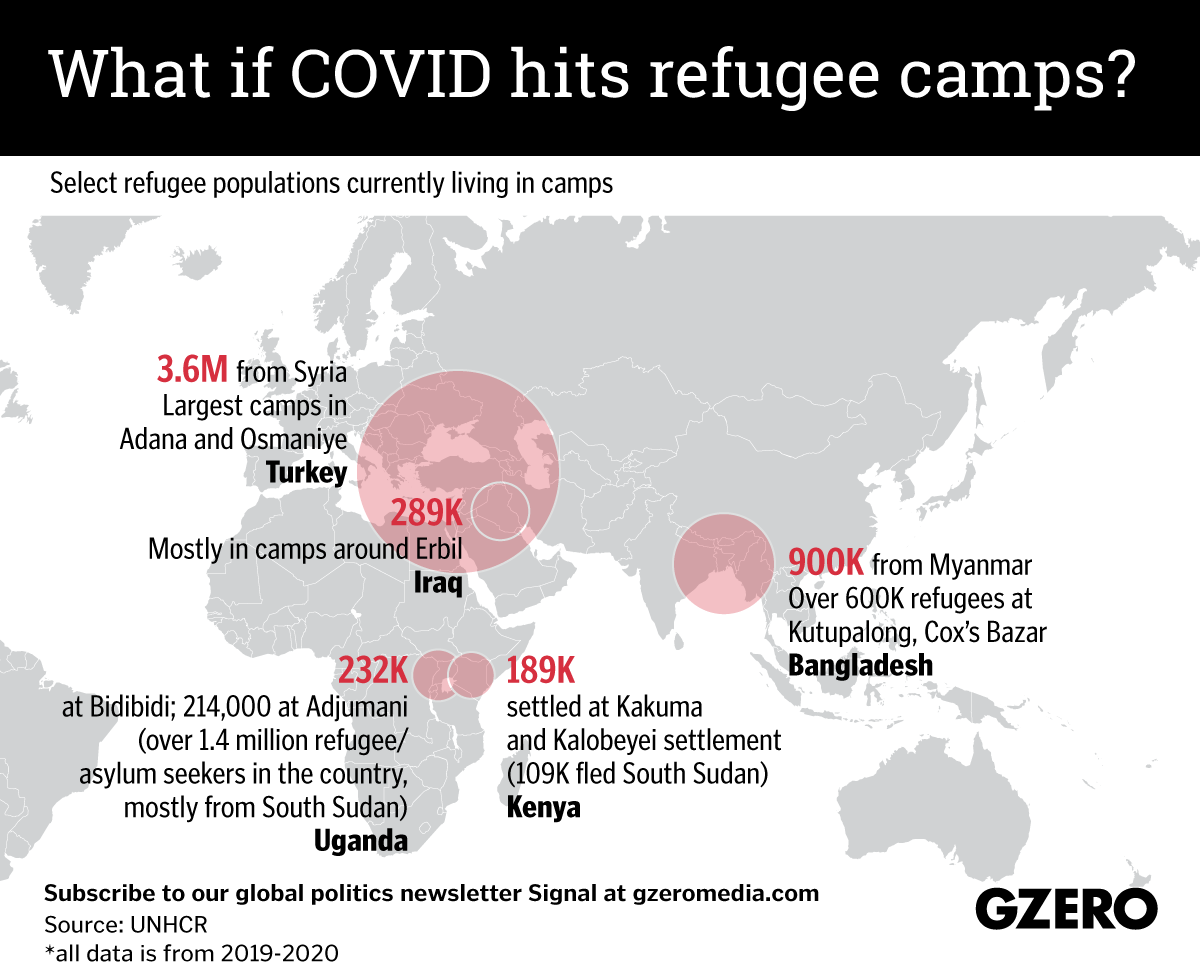The Graphic Truth: What if COVID-19 hits refugee camps?
April 01, 2020
The coronavirus pandemic is already wreaking havoc on developed countries where residents are able to socially distance themselves and self-quarantine. So what would happen if the contagion spread amongst the most vulnerable populations – refugees and asylum seekers in jam-packed camps? Many in refugee camps don't have access to running water or soap, which would make it all but impossible to slow the spread of the disease by washing their hands. Human rights advocates are bracing for a potential deadly outbreak at one these sites, where even ordinary infections spread like wildfire. Here's a look at some of the world's largest refugee camps, where the stakes are highest.
